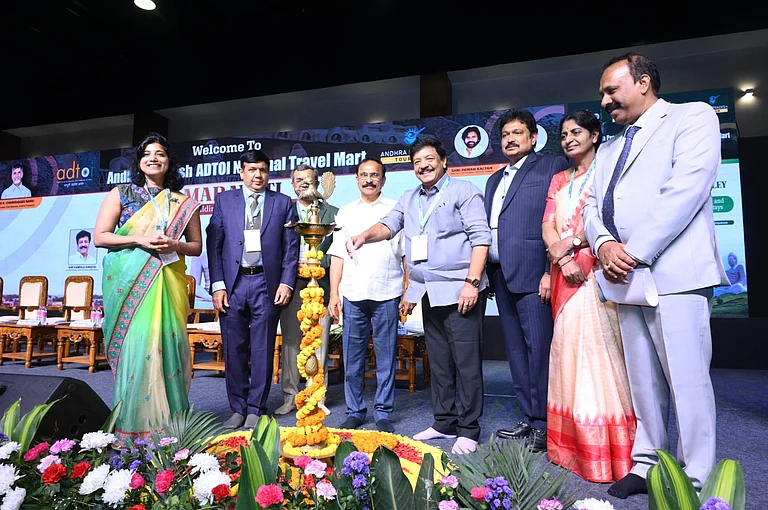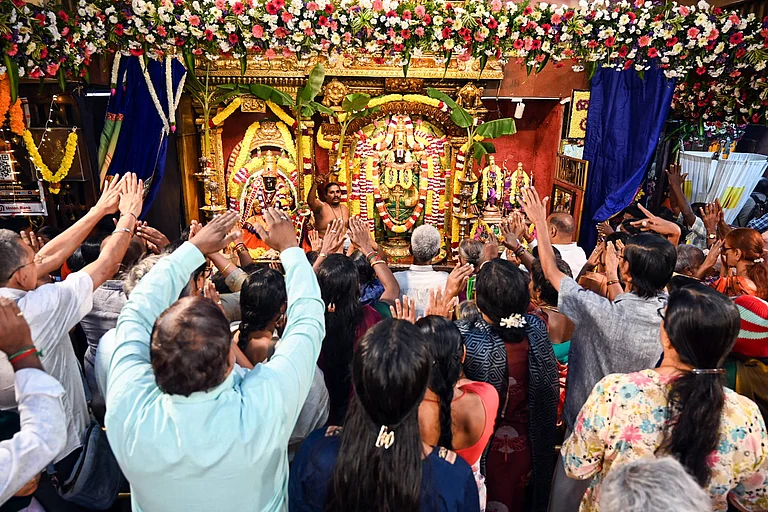The Andhra Pradesh government on Monday approved the Amaravati Quantum Valley Declaration, a new framework guiding its efforts to advance quantum technologies and foster a vibrant innovation ecosystem. The state aims to attract USD 1 billion in investments by January 1, 2029, following discussions at a recent 'Quantum Valley Workshop' in Vijayawada.
Amaravati Declaration Charts Quantum Future
The Andhra Pradesh government endorsed the Amaravati Quantum Valley Declaration. Secretary to the Government, Bhaskar Katamneni, stated in an official order (GO) that this declaration "shall serve as a guiding framework for the state’s efforts to advance quantum technologies and nurture a vibrant innovation ecosystem." It outlines 'shared commitments', a long-term vision, and strategic priorities for 'quantum research', innovation, talent development, infrastructure creation, and international partnerships.
The state aspires to transform Amaravati into 'a globally competitive hub for quantum science and technology'. The 'Quantum Valley Workshop' specifically discussed diverse quantum fields, including quantum computing, algorithms, hardware, 'quantum sensing and communication', quantum materials, capacity-building, standardisation, and a startup ecosystem for innovation.
Quantum Infrastructure and Technology Targets Set
Global partners, scholars, startups, industry leaders, and other stakeholders have made joint commitments for the Amaravati Quantum Valley (AQV) to establish a 'Living Lab Infrastructure'. This includes setting up QChipIN, India’s largest open quantum testbed, within a year. QChipIN will integrate quantum computers, QKD fibre links, and deployable sensor platforms to support pilot projects across health-tech, Banking, Financial Services, and Insurance (BFSI), logistics, defence, and space sectors.
QChipIN will provide end-to-end access to quantum hardware, algorithms, tools, and expert support, housed within a dedicated tech park in collaboration with industry and academia to accelerate domestic research and development.
IBM expects to install its 'Quantum System Two' at AQV by January 1, 2026, with a target of testing 100 quantum algorithms by the same date. By January 1, 2027, three quantum computers based on different qubit technologies, including 'superconducting circuits', 'trapped ions', 'photonic qubits', and 'neutral atoms', are planned.
Further goals include testing over 1,000 quantum algorithms annually by January 1, 2028, and achieving 1,000 effective qubits of total quantum capacity by January 1, 2029.
Driving Investment and Nurturing Startups
To promote domestic production, AQV will anchor the indigenous supply chain for 'qubit platforms', cryo-electronics, photonic packages, quantum chips, 'quantum dots', readout hardware like 'single-photon detectors', and control systems. These are projected to achieve '₹ 5,000 crore' in annual exports by 2030. AQV will also create a 'National Startup Forum' with 'milestone-based VC funding and mentorship'.
The declaration states that a dedicated '₹ 1,000 crore Quantum Fund' and access to 'Living Lab infrastructure' will support at least 20 quantum hardware and security startups in the next year, increasing to 100 by 2030. Additionally, startups will benefit from regulatory ‘sandboxes’.
The quantum valley aims to attract a minimum of USD 500 million in investments by January 1, 2027, and USD 1 billion by January 1, 2029, with a focus on quantum computing, chips, sensing, and communications.
Global Collaboration and Vision for India's Quantum Future
Andhra Pradesh will also establish a 'Global Quantum Collaboration Council' (GQCC) in Amaravati to align international standards, foster joint research and development, and promote reliable supply chains.
A multi-stakeholder 'Amaravati Quantum Valley Mission Board' will oversee governance, with working groups identifying use cases for quantum computing across various sectors.
Starting in 2026, Amaravati will host an annual 'World Quantum Expo', with the stated goal of becoming India’s 'quantum capital' and a global hub for deep tech innovation by 2035.





























